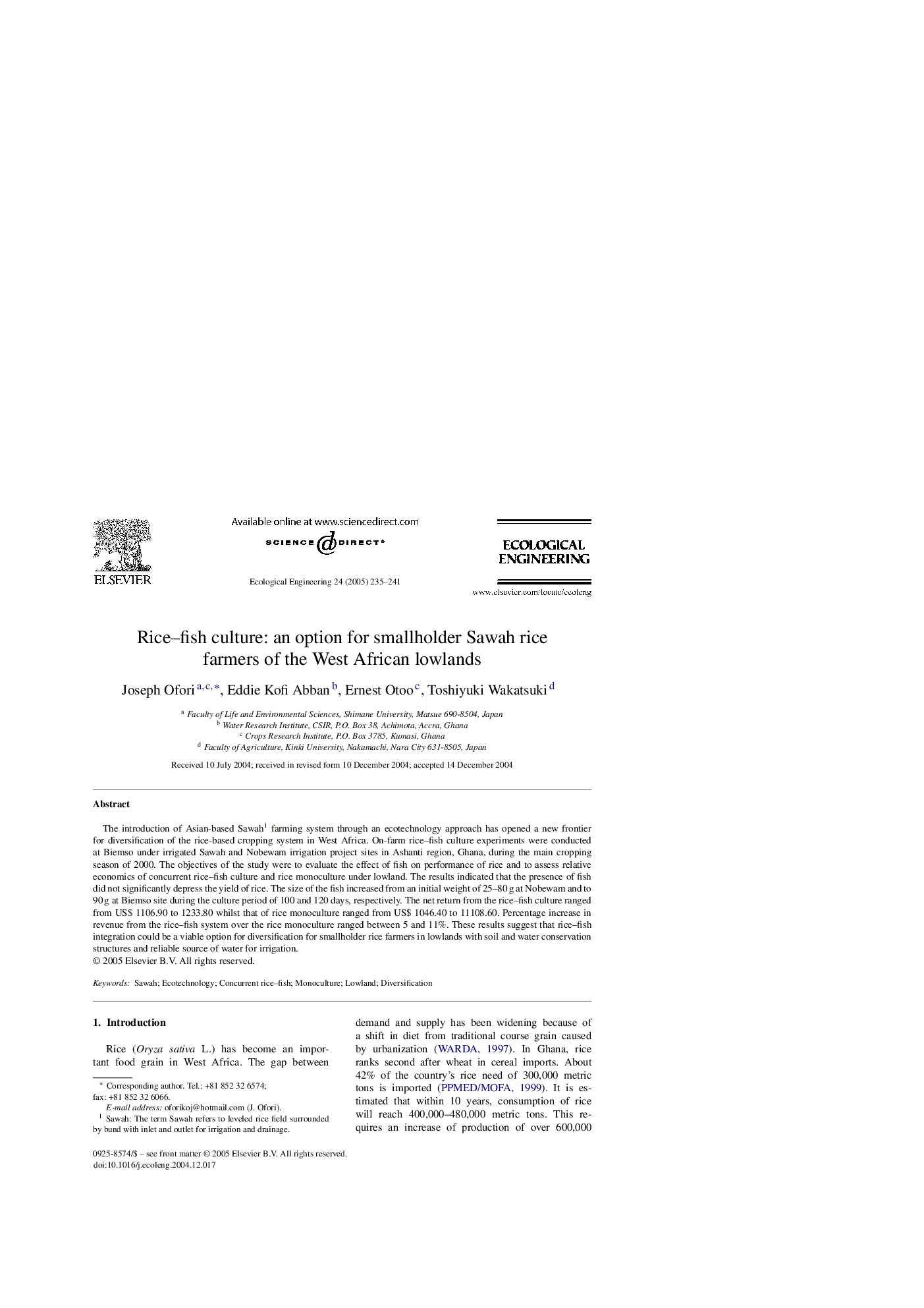| Article ID | Journal | Published Year | Pages | File Type |
|---|---|---|---|---|
| 9447396 | Ecological Engineering | 2005 | 7 Pages |
Abstract
The introduction of Asian-based Sawah1 farming system through an ecotechnology approach has opened a new frontier for diversification of the rice-based cropping system in West Africa. On-farm rice-fish culture experiments were conducted at Biemso under irrigated Sawah and Nobewam irrigation project sites in Ashanti region, Ghana, during the main cropping season of 2000. The objectives of the study were to evaluate the effect of fish on performance of rice and to assess relative economics of concurrent rice-fish culture and rice monoculture under lowland. The results indicated that the presence of fish did not significantly depress the yield of rice. The size of the fish increased from an initial weight of 25-80Â g at Nobewam and to 90Â g at Biemso site during the culture period of 100 and 120 days, respectively. The net return from the rice-fish culture ranged from US$ 1106.90 to 1233.80 whilst that of rice monoculture ranged from US$ 1046.40 to 11108.60. Percentage increase in revenue from the rice-fish system over the rice monoculture ranged between 5 and 11%. These results suggest that rice-fish integration could be a viable option for diversification for smallholder rice farmers in lowlands with soil and water conservation structures and reliable source of water for irrigation.
Related Topics
Life Sciences
Agricultural and Biological Sciences
Ecology, Evolution, Behavior and Systematics
Authors
Joseph Ofori, Eddie Kofi Abban, Ernest Otoo, Toshiyuki Wakatsuki,
